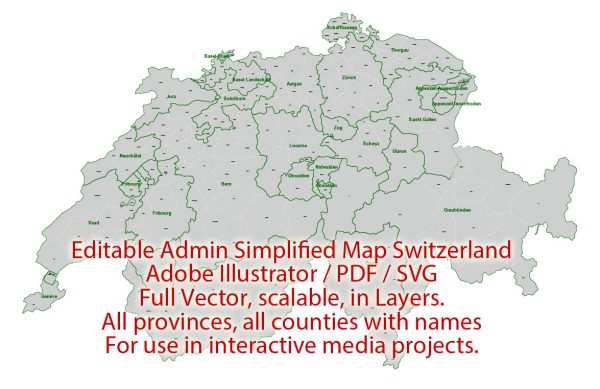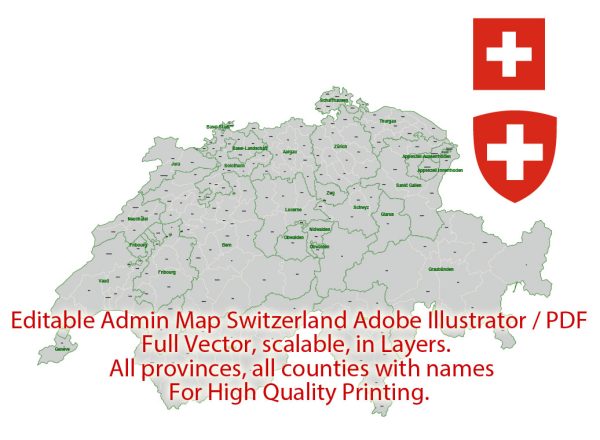Switzerland is a landlocked country located in central Europe known for its stunning landscapes, which range from the towering Alps to rolling hills, pristine lakes, and lush valleys. It boasts a rich and diverse natural environment, with a strong commitment to environmental conservation. Here’s an ecological description of Switzerland:
- Geography: Switzerland is predominantly mountainous, with the Swiss Alps covering about 60% of the country’s total land area. The remainder of the country features hills, plateaus, and fertile valleys.
- Alpine Ecosystems: The Swiss Alps are home to a variety of unique ecosystems, including alpine meadows, glaciers, and high-altitude forests. Many rare and endemic plant and animal species can be found in these regions.
- Lakes and Rivers: Switzerland is famous for its numerous pristine lakes and rivers. Lake Geneva, Lake Constance, and Lake Lucerne are some of the most notable. These bodies of water play a significant role in the country’s ecosystem, supporting diverse aquatic life and providing recreational opportunities.
- Forests: Forests cover about one-third of Switzerland’s land area. Coniferous and deciduous forests can be found, and they are essential habitats for various wildlife, including deer, foxes, and a wide variety of bird species.
- Biodiversity: Switzerland is home to a rich diversity of plant and animal species. The country has a strong commitment to conservation and has established a network of protected areas, including national parks and nature reserves, to safeguard its biodiversity.
- Climate: Switzerland experiences a temperate climate, with variations due to altitude. The higher mountain regions have colder, alpine climates, while the lowlands experience milder conditions. Climate change is a concern, as it affects the balance of ecosystems and contributes to the melting of glaciers.
- Glaciers: Switzerland has a substantial number of glaciers, particularly in the Alps. These glaciers are shrinking due to global warming, which has significant ecological implications, including impacting water resources and ecosystems downstream.
- Renewable Energy: Switzerland is a leader in using renewable energy sources like hydroelectric power. Its hydropower facilities harness the energy of rivers and contribute to reducing the country’s carbon footprint.
- Wildlife: Switzerland is home to a range of wildlife, including ibex, chamois, marmots, and red deer in the mountainous regions. In lower elevations, you can find animals like foxes, badgers, and various bird species.
- Conservation Efforts: The Swiss government and various organizations place a strong emphasis on conservation efforts. They work to protect and restore natural habitats, promote sustainable land use, and support research and education related to ecological preservation.
- Environmental Challenges: Switzerland faces environmental challenges like habitat fragmentation, pollution, and the consequences of climate change. Efforts are ongoing to mitigate these issues and maintain the country’s ecological balance.
- Green Practices: Swiss society places a strong emphasis on sustainability, with extensive recycling programs, efficient public transportation systems, and a focus on eco-friendly practices. These measures contribute to a more environmentally conscious society.
Switzerland’s commitment to preserving its natural beauty and fostering sustainable practices is evident in its ecological efforts, making it a model for responsible environmental stewardship.



 Author: Kirill Shrayber, Ph.D. FRGS
Author: Kirill Shrayber, Ph.D. FRGS